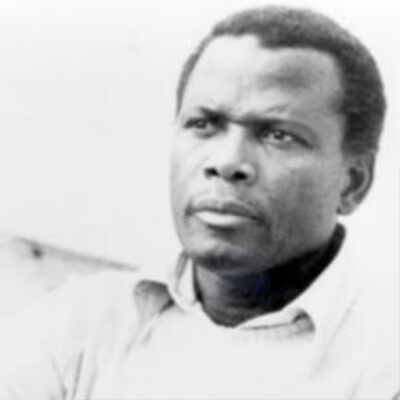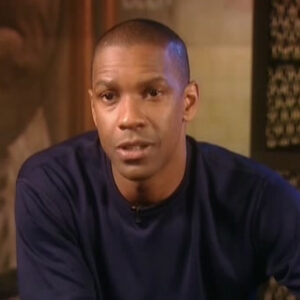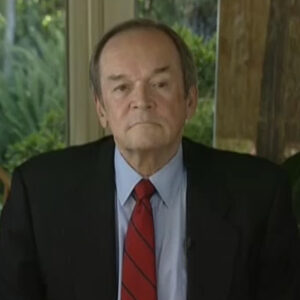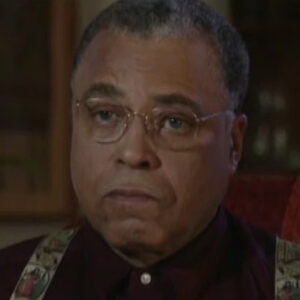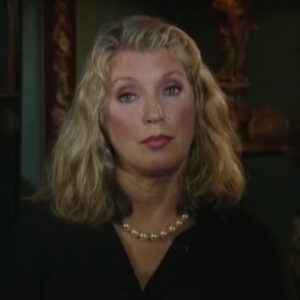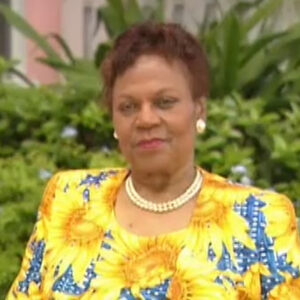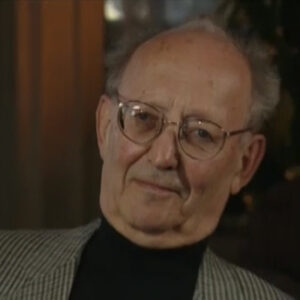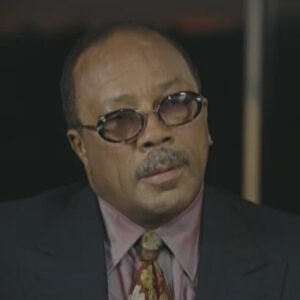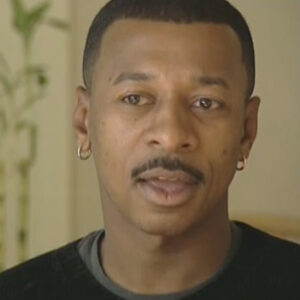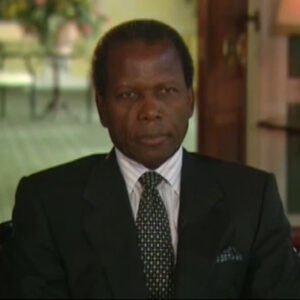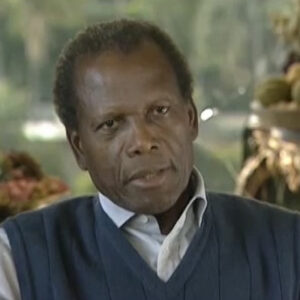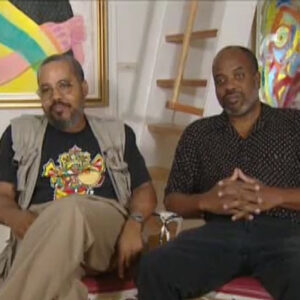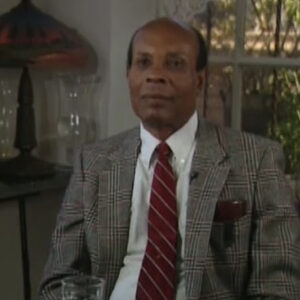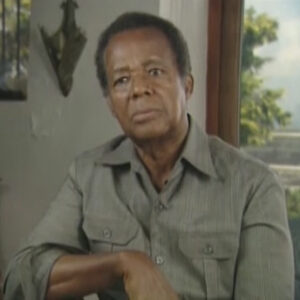Speaker Tell me about about about Sydney and Tony not having immediate chemistry the way it seemed that they had.
Speaker Well, Tony Windsor was a fighter pilot who was burned down. He got tied up and couldn’t make it. Uh huh. So I at the time.
Speaker And what was their connection together, what what happened when they started working together to save me?
Speaker Yeah, I’m fine.
Speaker And me for immediate report to Sydney said that you were one of the most courageous filmmakers this town has ever seen. How how did you do that in working in a company town?
Speaker It is true if it’s true, how do I know? How do you know?
Speaker Could be the last one.
Speaker Well, for instance, with Home of the Brave, how could you talk me into doing that?
Speaker I didn’t it was cheap. They just grabbed the. As long as it was cheap. Uh, Khosravi, 365, what caused about three hundred sixty five thousand.
Speaker The defiant ones, how did you get the idea to do that?
Speaker I do know how you got my.
Speaker When did you first see Sidney in a film, what was what when did you first see him and why did he first strike you? No, I got no.
Speaker Why do you think that in a period when it was an all white industry, that Sidney Poitier could be a leading man or perhaps a strong British man?
Speaker There are currently many. Through. He has an impact in power. And black and what is black?
Speaker Was that not a phenomenal. But he was the only one. Yeah.
Speaker Do you think that maybe the fact that that Sydney, like Harry Belafonte, came from the West Indies and were just more comfortable and had more fun around people and that it came through on the screen, that there was something very appealing and threatening, is that we’re hearing about that part of his background?
Speaker I don’t know how many I know, as I say, what makes a star? If you were describing a star, I would try to trace the biggest of them all, the last to describe how do you know?
Speaker Sidney wrote when he was working with Tracy that he was so overwhelmed by Tracy and Hepburn that he couldn’t remember his lines.
Speaker So tell me about that. Well, the first day we appeared on the set for rehearsal, Susie was aghast, stunned at raising her friend from.
Speaker Never made a satisfactory compensation, I guess, but he didn’t know that he had him back to her in real. I have something to do with it, when you came on the stage of that party, you know, you were dealing with somebody very important. And I’m Barzeh.
Speaker Everybody came to know that.
Speaker How did you solve the problem of his not being able to remember his life without becoming islands that he remembered they might never miss?
Speaker Right.
Speaker Well, he said that that that they used somebody else instead of that for his close up, they use somebody else for him to say his lines. Do you remember that?
Speaker No, no. I mean, I would have been the one who was right.
Speaker I would have been the one who, after I left my memory. Remember that.
Speaker Do you remember the first time you ever saw Sydney on film that made you want him to work? No. Made you want to work with him?
Speaker I don’t remember that.
Speaker What was so exceptional about the role of Colin, what distinguished it from the role and characters of black actors and in 1958, why did Sidney want this part so much?
Speaker Well, he was a complete person. I wasn’t talking about a black man who was a minority in the society and was exceptional. I was talking about another actor, another human being. I was born.
Speaker And that’s still important to him. Yeah.
Speaker What about Sydney and the whole Porgy and Bess thing, could Goldwin really have kept him from working if he refused to do it? In other words, you had he had to do Porgy and Bess in order to do your movie about that.
Speaker An individual entrepreneur and individual producer, director, if I wanted to do something, I went after it. If I didn’t get everybody out. It wasn’t anybody else at that time.
Speaker For the day, you had to create an exceptional. Yesterday.
Speaker When I say here is a natural personality to me.
Speaker Important and important.
Speaker Yeah, well, he’s a statesman now, he’s a statesman now he’s an ambassador.
Speaker Well, I know about that. Yeah, fine.
Speaker From a little boy on Cat Island whose parents were so poor that they they made their living from tomatoes to last night.
Speaker All I can tell you is he can have he can have anything.
Speaker He’s one of those people.
Speaker What do you think is his bond with you as a director?
Speaker I don’t know, I guess. They have a bond with me.
Speaker I don’t know. I think he wants what I want to do it best and do it right. And if he drew. And I think the bond is.
Speaker That you’re both committed people think that. Guess who’s coming to dinner? Was criticized by some of the black community and Sidney was attacked. Why? I don’t know. Can you tell me why?
Speaker Maybe because he was thinking of marrying a white woman in that period.
Speaker Yeah, but that’s what I’m worried about.
Speaker Anybody who’s a big person and worth something is going to be attacked somewhere. Well, he, while he took it very well, stayed in stride, Mary, David, you can go back. Backwards, great to.
Speaker Was it was it hard to sell the idea of doing that movie of the first interracial?
Speaker Hard to say any anyway, with an idea, particularly a different one, particularly what, particularly a movie about something. Very hard, because there are some people who say no to anything is a deviation or a chance.
Speaker And. We did a. I went to.
Speaker Was it was it Tracy and Hepburn that that put it over the edge, put it over the line in terms of getting it done?
Speaker Well.
Speaker To Sydney, sitting here watching him operate, you think so? I don’t think so.
Speaker He appeared on the set for that first day of rehearsal. It’s true he couldn’t speak even in their presence.
Speaker They were too legendary, but he got used to it and he performed. I didn’t heard that of.
Speaker The film was was banned in many southern states.
Speaker Could you talk about that rescue or something? I was going to read something.
Speaker That’s right. If it was bad, it must have been worth something.
Speaker Well, was a challenge in many ways. I try to keep it in mind, in good taste and reasonable, as I hope I did.
Speaker Do you think that bringing up that subject within that kind of comedic context made it easier for the country to accept at that time?
Speaker Who knows what made it easier? Nothing. Whatever it is you were. I don’t know.
Speaker I always felt. The who is the guy? Wonderful guy. You’re one. What do you want? Oh, black.
Speaker You went to great lengths to be at the tribute last night. Why was it important to you to come out for this man? What does he mean to you now?
Speaker Well, my good friend. I don’t know that’s not important or why I attended, I attended for myself, I wanted to be a part of it. And I’ve always wanted to be part of him. And he wanted that he wanted me there. I went in there, I was part.
Speaker What is it that you would like to say just from yourself about about Sydney and anything that you haven’t said or to Sydney, Sydney, where the man is the man?
Speaker Worth. Of courage, of talent, that’s where he is, are you accept him? I don’t on whatever basis you operate. The base that I was I was operating with the exception of. Because, you know, he was a man, but he was a star.
Speaker And I treasure. It’s back to the very beginning.
Speaker And that’s what I want to appeal to me. With, as I was estimating, Marlon Brando, not Sidney Poitier, the black man, certainly, certainly not from Eisenhower. How would you compare Brando and Che at that time, he worked with both I wouldn’t compare them because they didn’t deserve comparison. And the other rating, they’re both distinct personalities, opposite in any way. But tower, that tower downtown that rang the bell. Your ability to. First picture with Brown, there was the man. With mine, I’m proud of that.
Speaker The.
Speaker Deserves his stature. He worked for it and he had the he got the big. Can’t do that.
Speaker Have boom, you know, in talking to you, Stanley, when you talk about Sydney, I can see your power and your drive.
Speaker He can. Yes, I try to keep that in check in here. Well, all right. Sorry. Your perceptiveness. I want. So nothing.
Speaker So it’s just nice to see.
Speaker What I wish I could think of another question for you, because we’ve gone through it, I’d like to keep you here for an hour. What do you want to talk about? Anything.
Speaker When I talk all the time, why should I? I won’t take up your time.
Speaker You want to talk about about the industry now, about the changes you’ve seen in the industry?
Speaker Yeah, I never had.
Speaker Talked about it. What about these two hundred million dollar movies that are being made?
Speaker What about what about them? It’s great money and costs are going up very expensive to make a movie like that.
Speaker Yeah, but you made your movie, you know, great movie set for four, three hundred and sixty five thousand dollars.
Speaker Yeah, but they inside the city of Paris, I fly.
Speaker They are not productive, G.
Speaker I guess not as expensive. I got.
Speaker I mean, yes, thank God.
Speaker Anybody else have a question I want to ask?
Speaker And with Spencer being so ill during the making of of guess who’s coming to dinner? How did you deal with that situation? He was dying.
Speaker When I knew it and he didn’t think it was the way through the day, he finished. He bowed and said goodbye to your.
Speaker And we knew what he meant.
Speaker And he was saying goodbye, he died a week after was.
Speaker Cause everybody when I said I did it, I finished the picture.
Speaker Professional.
Speaker I said a professional, yeah, yeah.
Speaker Anything else working in Russia? Working in Russia with. Talk about working in Russian.
Speaker For me.
Speaker The opportunity is her mother, Paul. Because he reacted to my throwing Mr. Challenge back at. Positively, they were accustomed. So he said, hey, this guy must have something.
Speaker And I found extensive cooperation, magnificent cooperation, good to. And I got along very well with the Russians now can play in a system which is full of blocks and hurdles.
Speaker They made it easy for. Wonderful.
Speaker When you work on a film, Stanley, do you see the whole thing in your head, you being storyboard, do you?
Speaker I just. Tell me what you see. Oh, think. You may be afraid to ask me that question. I could I would have said that. Oh, I see your. Oh.
Speaker I tried to raise. Do you have it storyboarded in your mind or do you have it storyboarded? I don’t know what a storyboard means or I don’t. Yeah, know many things come as they come.
Speaker Because what we call genius productions is. That’s what everybody calls the.
Speaker So I.
Speaker So that is production ability. To adapt, change, but have a.
Speaker With a dry.
Speaker Did you rehearse sure.
Speaker Everything I really started rehearsals and made them more than anybody in Hollywood. I rehearsed every picture, every. As you know, we’ve had some of our biggest idea in their eyes. You get Spencer Tracy and Hepburn and Bradley. Myself and. Chester. Think, God, our object talk. Good things about.
Speaker So do you look, when you’re when you’re in rehearsal, you look for the surprises that your actors can bring, you got sure to allow.
Speaker And any time they have to be a rehearsal. But I like. I got right back to. I accept the. How much is a good job? I was moved town.
Speaker Jan.
Speaker The edge. Yeah.
Speaker I’m asked to ask this question, but I think you’ve answered it, how did you did you try to make it better for blacks in Hollywood?
Speaker That precise definition.
Speaker I tried to make it better by being a human being, subject to chance to objection, realizing what the other objections were.
Speaker So in that way, yes. I accepted that.
Speaker I think so.
Speaker When you started, did you come to directing from acting, from editing, where where did you come from?
Speaker I came from the only place I could come from the top and my producer. I made myself my own director. Didn’t have to. I already made I knew Karen gave me a place somewhere. To accept the challenge, the subject matter, something else.
Speaker I accepted that. And you made history. You know.
Speaker They with. Guess who’s coming to dinner?
Speaker Ship of Fools. It’s a mad, mad, mad, mad world. Yes. The comedy only comedy. Yeah, you know, that picture was made because everybody said I couldn’t do comedy.
Speaker And you showed them?
Speaker OK. Yeah, just.
Speaker Do you remember anything in in in the way Sydney worked when you were doing The Defiant Ones that surprised you the way they were?
Speaker Yeah, no, my ego tells me I supplied the surprises. He was surprised at how I worked.
Speaker He was scared when he kind of stepped on that stage for the first time with me. Because I seem to be threatening.
Speaker I wonder where they would have done if he had Branda.
Speaker Probably that would have been something she would particularly at that time with that brand of. Tony did not do badly, Tony did a great job, and then. You you know that you’re a great director.
Speaker Oh, nobody knows a thing like that. I never said White House, you know, some my great director.
Speaker I never, never even gave myself credit for talent, ordinary talent.
Speaker You’ve got to prove the business. You feel your way to your people. They feel you. Then, you know, when you got. You have you have the top.
Speaker Touch the feel.
Speaker I was made material for the screen, which gave me the opportunity to prove that.
Speaker Only to be.
Speaker All right, to you, did you ever prove it yourself?
Speaker There a good enough name, any picture, a sequence I could have done a better.
Speaker I know, and with Spencer Tracy. The world’s greatest.
Speaker Was he your your favorite, favorite actor?
Speaker He is. He promised us down or up, whichever way to accommodate.
Speaker Was wonderful. Feeling like a human being.
Speaker The challenge of being a human being made him a great movie picture actor.
Speaker Because you’ve got to be human.
Speaker I have told that story about last night’s comment to 15 people so far, that whole thing about it, so I could see that whole thing about Sydney, you know what he says wouldn’t tell me.
Speaker Mr Kramer, you’ve made three films with Mr. Poitier when you look in the camera.
Speaker Tell us, what do you see?
Speaker Same old black face. That was the funniest comment I’ve ever heard in my life. He was just hysterical. Was really very cute. That was very the whole audience loved it. Yeah. Said why do you like it, huh? And he said, Why do you like me? Says, I guess I’m queer for that black actor. Well I’m clear. I’m clear. I’m queer for that black actor.
Speaker That’s what he said. Yeah. That was really cute. I thought. Yeah, OK.
Speaker Well it was cute what it was that his remarks were. Are you awake today? Are you sleepy today. Sleepy had drive passion. Well, you got a great gal here. She’s one of my favorites. And I love you. Love to direct you. I wish I would wish to be what you want.
Speaker Oh, you going to hate this? What advice do you have for young filmmakers today?
Speaker Pay yourself, reflect an attitude, whatever it is, and go for it, however difficult it seems.
Speaker That’s my advice, tough advice.
Speaker What did you think of Sydney as a director, Sydney, who the atmosphere is too studded with myself. We had there was Sydney.
Speaker All right, if you ask about the relationship that your feeling about how much you adore him and love him, yes, I’m sure he respected and admired all the things you stood for, other how you laughed with him.
Speaker And now it’s not a question. Let me watch from Sydney in the south, doing very, very well at times.
Speaker Civil rights. You did it all.
Speaker So you took a chance that nobody else would ever do a movie about those kinds of something that you were way ahead of the time you got picketed everywhere.
Speaker I wanted to talk about. But let’s let’s talk about Margarite, huh? You know, I’m just I’m just taking my glasses off, OK? Have you met?
Speaker What do you ask? I’m going to ask I’m going to ask Karen’s question and taking a chance on Sydney.
Speaker What did that mean to you and how did you have to fight for him to get him?
Speaker I didn’t get any chance our.
Speaker Making subject matter that was way ahead of its time about the black man’s issue and a society that was not accepting of that.
Speaker That’s never occurred to me.
Speaker Tell me about marching with with with Sydney and the civil rights period.
Speaker Oh, so. I love the show.
Speaker Thank you. Be a show off.
Speaker For me. Good luck to Sydney, ask him to come, Sydney, ask you to join him.
Speaker I remember.
Speaker But. You, everybody. I would have joined them anyhow.
Speaker I want to make you were you are marching to your own drummer. He is my soul. I feel myself. But my heart and my brain, so. Which is the heart of the.
Speaker Sally, what about what you felt about the fact that Sydney, who represented two cultures in a way, he represented his own Lachman’s point of view, and also he made that transition to the white people’s feelings.
Speaker So he a way away it for many, many years feeling at cross purposes about where he actually belonged.
Speaker Never. He was never at cross purposes from my standpoint. He was in a party that he asked and looked at him and that’s when I felt black and white and matter.
Speaker What about the issue of guess who’s coming to dinner, about two black men kissing? A white girl that caused a lot of controversy, I remember sitting in a restaurant with you when people came up to you and said. You should be shot for what you just. You were picketed everywhere, and I was afraid for your life. You were you know, I didn’t want you going to the south and that the.
Speaker Seem to be a natural thing for me.
Speaker That’s where I felt I didn’t make purchases to spend the time on something I didn’t feel.
Speaker So I wasn’t pretending it was.
Speaker Can you say that again, keeping your eyes open?
Speaker I was standing with.
Speaker And the other direction I want you to meet how warmly you embrace this much love there, was it always that way or was it over a period of years?
Speaker It was always that way.
Speaker And they were the one before I said I approved before did we were there for each other.
Speaker I’m sure Sydney was looking for a father figure, too, I’m sure that Sydney was looking for a father and that you were and that you might have been it for him after all, his folks set them away when he was 14.
Speaker Well, that would have made me the miracle worker.
Speaker I always said, I want a black child.
Speaker I know that it’s not easy to.

